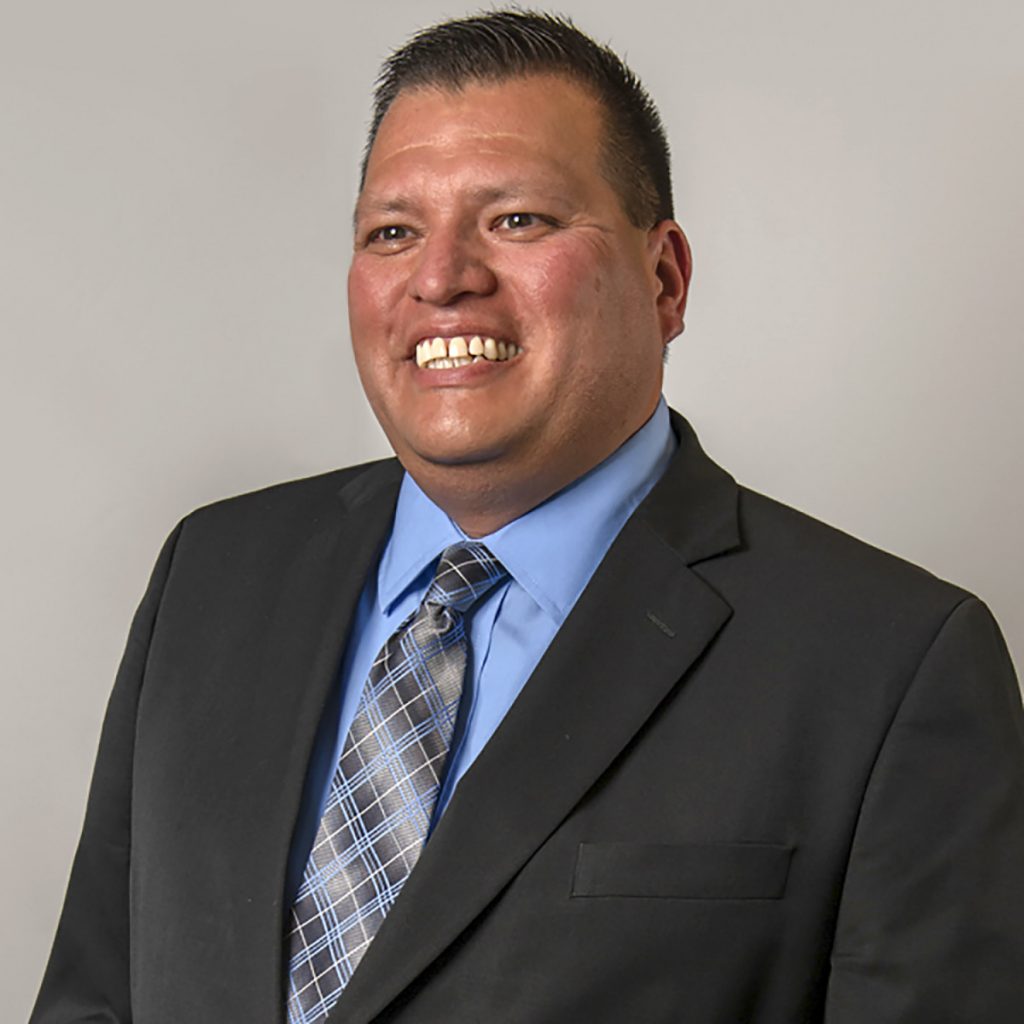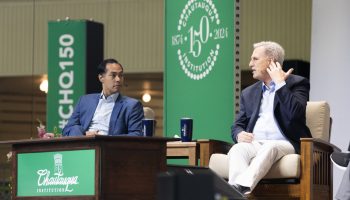MAX ZAMBRANO – STAFF WRITER

Every day is an adventure for Michael Martin.
As the executive director for Native American Community Services of Erie and Niagara Counties, which he said is a growing, multifaceted organization serving both Native and non-Native populations, no day is the same and each day brings its own set of challenges.
“I see challenges as opportunities,” Martin said. “Ever since I became executive director (in 2004), we’ve been able to grow the organization and ensure its sustainability. We’ve been innovated in terms of creating new approaches and programs to solving long-standing issues and underlying factors. It’s exciting.”
At 1 p.m. Tuesday, July 20 in the Amphitheater, Martin will present his lecture, “The Doctrine of Discovery: An Unjust Imperative, Born Out of Religious Justification — A Presentation of the Tragic and Lasting Consequences of Supremacy,” the second Interfaith Lecture for Week Four’s theme of “The Evolving Religious Narrative of America.”
Originally from Western New York, Martin left for another career after working at NACS in college. He returned so his son could be raised in the same community as him, and he ultimately came full circle with his return to NACS.
Despite his organization’s efforts, community members — particularly the Native community — still face intergenerational challenges, Martin said.
“Over the last decade, we’ve put a focus on not just solving systematic issues, but trying to root out and address underlying factors in the community. And we found out for other communities, too, a lot of times there are these intergenerational impacts,” he said.
In 2009, Martin said, NACS created a documentary, “Unseen Tears,” which focused on those intergenerational and underlying issues in Western New York.
He said understanding those factors helps people understand “why we are the way we are.”
With facing historical trauma, Martin said one of the key questions, which he will discuss in his presentation, is not asking what is wrong with somebody, but what happened to them.
“Everyone has a story, and all populations of people have had experience with trauma, current and historical,” Martin said. “And, some people have a different resiliency. Some can handle trauma, and for others a simple thing can send them into chaos.”
Learning about those factors made a huge difference, Martin said, in programs and approaches in addition to outcomes for the people NACS serves.
Martin said NACS, in a way, “wants to put itself out of business” by solving these underlying issues. But, it has added new programming that goes beyond this mission, such as language programming and teaching tradition concepts.
“It’s not just about resolving underlying issues, but building community and creating opportunity and creating pride in traditional and cultural teachings,” he said.
In his lecture, Martin said he will discuss the consequences of supremacy from the Doctrine of Discovery, which Christians gave as justification for taking land that didn’t belong to them, dating back to the 1400s. The Supreme Court still uses it today to justify some rulings, Martin said.
Martin hopes people realize there are more similarities between humans than differences, especially when it comes to basic needs.
“I’m looking for opening people’s eyes and hearts and get us back to the original teachings of how we were supposed to be together as humans,” he said. “If we trace all of our creation stories back, we probably all got those same original instructions.”
In addition, Martin hopes that understanding the Doctrine of Discovery and its impact will help people be more informed to make more just choices.
“We need to root ourselves going forward in the future around our common humanity,” he said.




